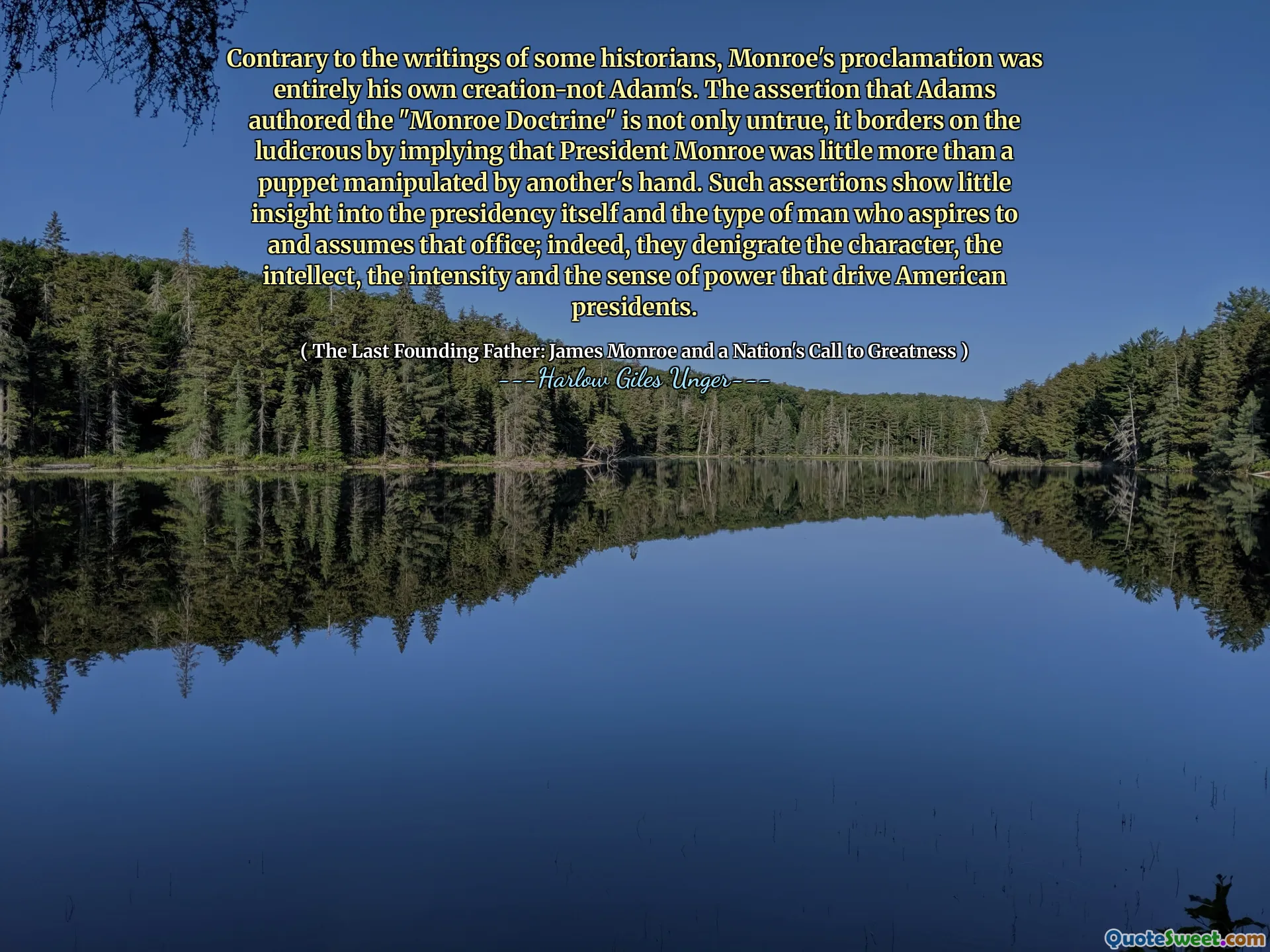
Contrary to the writings of some historians, Monroe's proclamation was entirely his own creation-not Adam's. The assertion that Adams authored the "Monroe Doctrine" is not only untrue, it borders on the ludicrous by implying that President Monroe was little more than a puppet manipulated by another's hand. Such assertions show little insight into the presidency itself and the type of man who aspires to and assumes that office; indeed, they denigrate the character, the intellect, the intensity and the sense of power that drive American presidents.
The claim that the Monroe Doctrine was primarily the work of John Quincy Adams rather than President Monroe himself is unfounded. Such a notion undermines Monroe’s capabilities and presents him as a mere figurehead, which fails to recognize the complexities and responsibilities of the presidential role. Monroe's leadership and character should not be dismissed, as they play a crucial part in the crafting of significant foreign policies.
Harlow Giles Unger highlights the importance of acknowledging the individual contributions of presidents to their legacies. Monroe's assertions and actions were driven by his own beliefs and judgments rather than by outside influence. Diminishing Monroe’s role misrepresents the nature of presidential power and the qualities necessary for effective leadership in shaping national policy.











